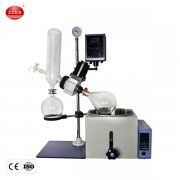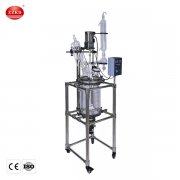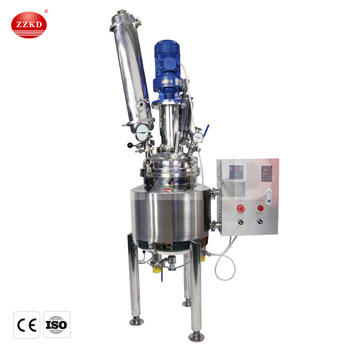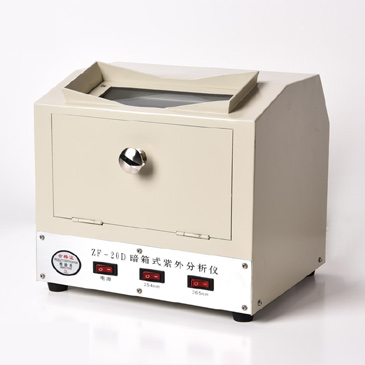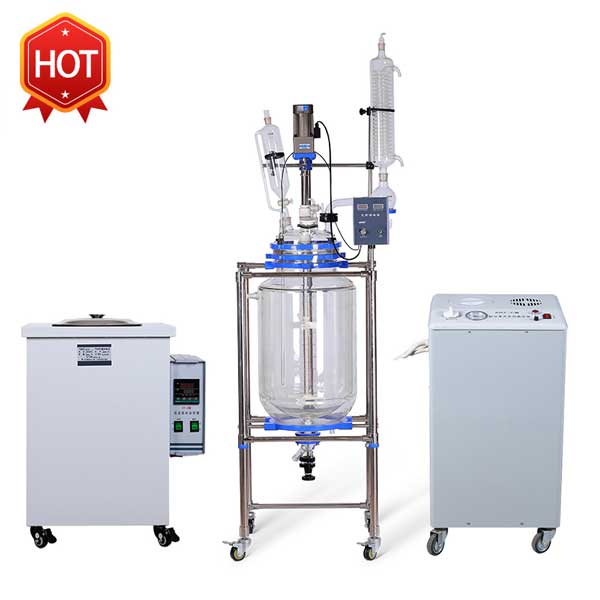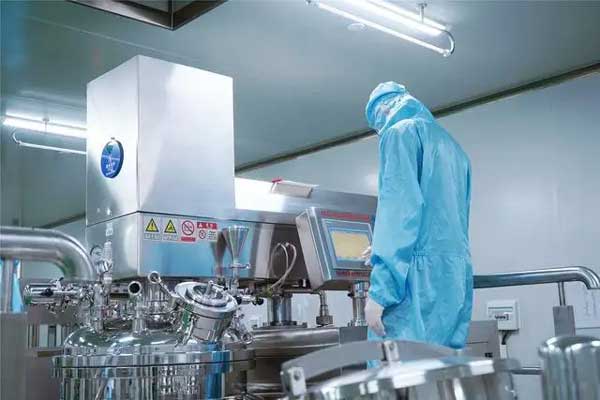Many people know that a
Lab Scale Glass Reactor is a chemical reactor that enables the process industry. Jacketed reactors are designed to control the temperature of their contents by heating or cooling a jacket around the reactor. The jacket can allow for a uniform heat exchange between the vessel walls and the fluid circulating therein.
At present, there are single-layer glass reactors,
2l jacketed glass reactor and triple-layer glass reactors on the market, and they all have their own unique characteristics. Jacketed glass reactors, jacketed type are always used to remove elevated heat of reaction or to reduce the viscosity of highly viscous fluids. This type of jacket prevents the high temperature spiral of increased reaction rate. During the reaction, more heat is generated, so the cooling liquid flows through the jacket and collects thermal energy from the outer surface.
Agitation in glass reactors is also very important to improve fluid homogeneity. The properties of the fluid include temperature and concentration, and agitation refers to the movement of the fluid by stirring or shaking to achieve mixing.
Why choose Jacketed Glass Reactor With Agitator?
Unique sealing method:
Since the PTFE lining in the dissolution bottle of the
50L Jacketed Glass Reactor has a larger thermal expansion coefficient than the bottle shell, the PTFE is easy to relax and leak when the bottle body is heated, especially when it is cooled. To avoid this phenomenon, all dissolution bottles in glass reactors are equipped with load-bearing spring caps. During the entire operation process, the entire cover plate device of the glass reactor can continuously maintain the pressure of the sealing surface.
Strong corrosion resistance:
The glass reactor is made of polytetrafluoroethylene material. The laboratory glass reactor can resist the corrosion of various strong acids and alkalis. The glass reactor can be used for strong corrosion of inorganic and organic materials such as ore and glass.
Easy to operate:
The glass reactor uses a unique wrench that can be opened and fastened quickly. It has the characteristics of convenient operation. Laboratory-scale glass reactors speed up the analytical process, maintaining strong acids and bases at temperatures above their boiling points in a simple manner. Compared with dissolving in an open container at normal temperature and pressure, the sample dissolution rate of the glass reactor is faster and the operation time is shortened.
How to choose Jacketed Glass Reactor With Agitator?
A drive shaft in the middle of the mixer and a motor mounted on top of the mixer are standard. The blades of the impeller are attached to the shaft. There are many different blade designs, but in general the blades will cover about two-thirds of the reactor diameter. Anchor paddles with minimal space between the vessel wall and the blades are commonly used to transport and handle sticky cargo. These stationary blades disrupt the flow created by the rotation of the agitator. While advances in agitator baffle and blade design have helped, available energy remains the limiting factor when mixing in large batch reactors. Additionally, shaft stability issues can also be caused by excessive loads on the agitator. In situations where thorough mixing is necessary, batch reactors are not the best choice. The use of high-speed agitators, ultrasonic mixers, or static mixers in combination with downscaled flow systems can achieve greater mixing rates than traditional methods.
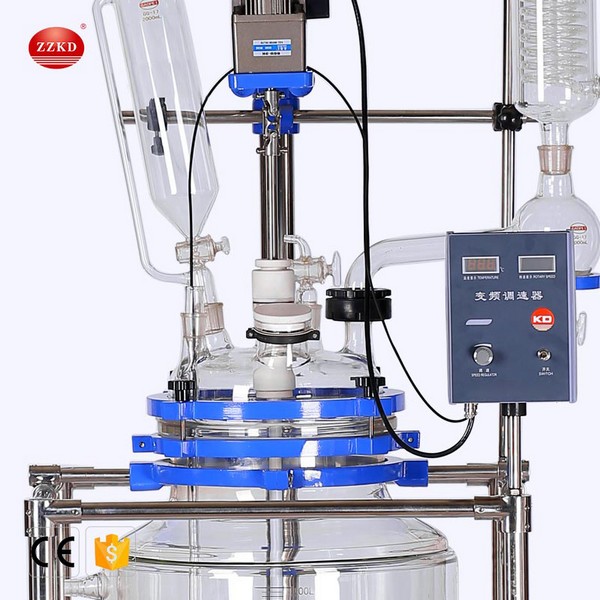
Glass reactor application:
Chemical Glass Reactor:
Chemical glass reactors provide enclosed spaces for chemical reactions. Widely used in industrial chemistry, medicinal chemistry, chemical engineering and other fields. Whether for engineering or any other service, the goal is always the same: to increase the net worth of any reactor.
Chemical glass reactors can also be used as continuous or batch reactors or other types of reactors, which can be used in combination or individually. This equipment can also manufacture catalysts, reagents or inert chemicals. Over time, they break down into a gas or liquid.
Pharmaceutical glass reactor:
One of the main applications of glass reactors in the pharmaceutical industry is. The great thing about many of the new glass reactors is that they can accomplish these reactions in a fast and reliable manner. Many pharmaceutical companies see the dramatic increase in the efficiency of these reactors as a great opportunity to try new methods and processes in search of something more profitable. Currently, a significant number of these companies have successfully developed new reaction processes within their factories and other properties. Therefore, glass reactors are widely used in the pharmaceutical industry due to the upgrade of functions and performance.
Bioglass Reactor:
Biochemical companies aiming to reduce operating expenses and generate new revenue streams are also incorporating glass reactors into their operations. A growing number of biopharmaceutical companies are realizing that diversification of their revenue-generating operations is critical to future economic survival. In uncertain market conditions, no company can rely on a single processor for most of its revenue. Therefore, the bioglass reactors on the market are the right choice for many businesses looking to add a new process to their business model.

 Products
Products





